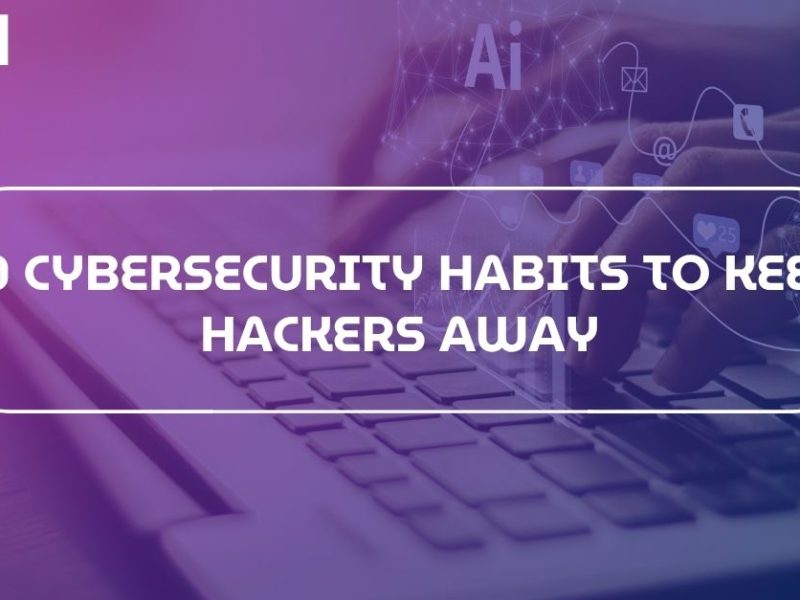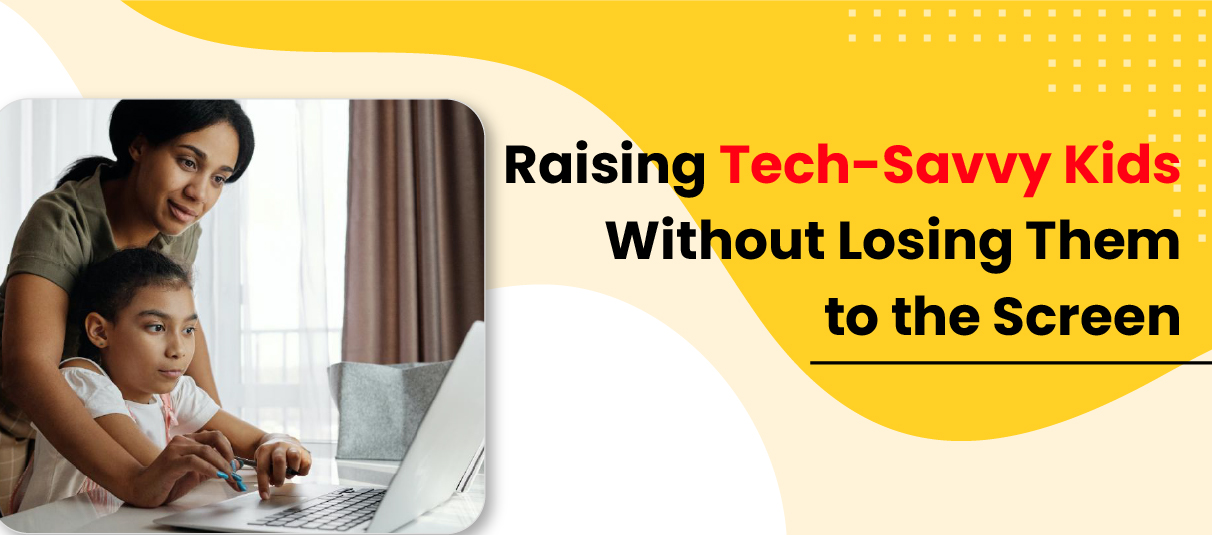
Parenting in the Digital Age: Finding Balance and Boundaries
Ever given a thought to what kind of life we are living? Even being away from work, we are not being disconnected. Or being physically there with the kids but mentally distracted by something else. Maybe walking on the road but not sharing smiles with the passerby instead of scrolling fingers through the phone screen. Well, it’s a common scenario for almost everyone these days. It is a result of our hyperconnected world, which we are all involved in with/without reason.
We don’t give time to ourselves. No time to rejuvenate or relax; we keep gazing at the screen, and so do our children. The Gen-Z is more open to technology than we were in our time. Actually, in our early years, we only had TV with only Doordarshan channel. But, today, the generation is way ahead; they are the techy children with gadgets in their hands.
So, what can be done? How can screen time be reduced and time can be balanced to; productive + self-time + family + enjoyment? Simple, we need a time management system that keeps us alarmed if we exceed one work time with another. Thinking how? This is possible with Digital Wellbeing and Parental Control Software.
What is Digital Wellbeing?
Digital Wellbeing is a fairly new term, but it is pretty clear by its name. According to Google, digital well-being is “a state of satisfaction when people have the technology they need and want.”
Digital well-being is the way of life with a relationship to technology that manages ourselves from being used by it and through using technology towards the goals we have set for our lives. A key aspect in the present situation — according to Rescue Time, on average, people spend 3.25 hours a day in front of their phones.
Capitalizing on this growing trend, the BBC has also created a Digital Wellbeing initiative that aims to make people happier by encouraging them to enjoy their lives both off and online. They concentrate on the 16-34-year-old youngsters, as they’re the techiest generation that keeps suffering in the online world.
Digital Wellbeing’s Importance
When it comes to their physical and cognitive development, children are undoubtedly the most impacted by excessive usage of digital devices. “Youngsters under the age of five should spend no more than an hour a day on screens”, according to the American Academy of Pediatrics, but in practice, youngsters use screens far longer than that. This is where Digital Wellbeing and Parental Controls comes into work.
Long hours of digital life can hamper offline life.
Mental Health: Prolonged use of screens and exposure to inappropriate material can cause anxiety, sadness, tension, and trouble sleeping.
Physical Health: Obesity, back pain, and other health problems can be caused by sedentary behavior and can result in bad posture.
Social Skills: Spending too much time on electronics might impede children and teenagers’ development of critical social skills.
Productivity: Digital distractions greatly influence our ability to concentrate and be productive at work or school.
Open Communication Make Things Easy
Unfortunately, over one-third of youngsters in India have come across hazardous or damaging information online.
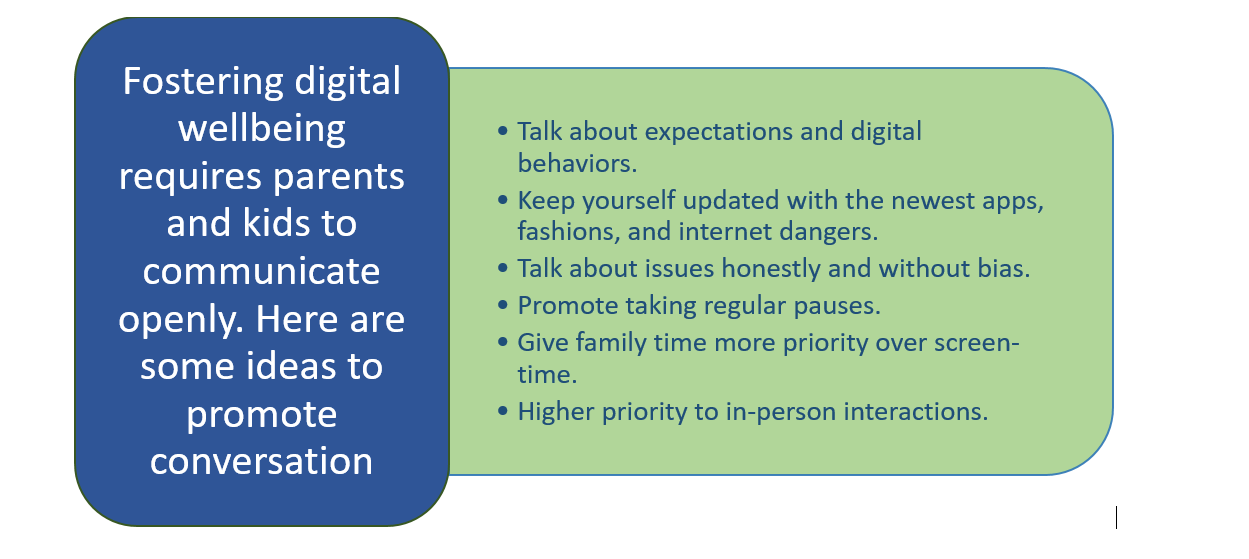
Children learn by imitating. Set an example for them by adopting sensible digital practices. Teach your kids the value of internet safety and the possible dangers of excessive screen time. As parents, it is your duty and responsibility to guide your child in the right direction. Parents are the first school for their kids.
Role of Parental Control
With parental controls, parents can keep an eye on, restrict, and regulate their kids’ online activity.
Limiting access to unsuitable or hazardous information is one way that these solutions contribute significantly to promoting digital wellness and restricting screen time to maintain a healthy balance between online and offline pursuits. It helps monitor kids’ internet activity to spot possible problems and take appropriate action.
Different types of Parental Control
To assist parents in managing their children’s digital experiences, different types of Parental Controls are available:
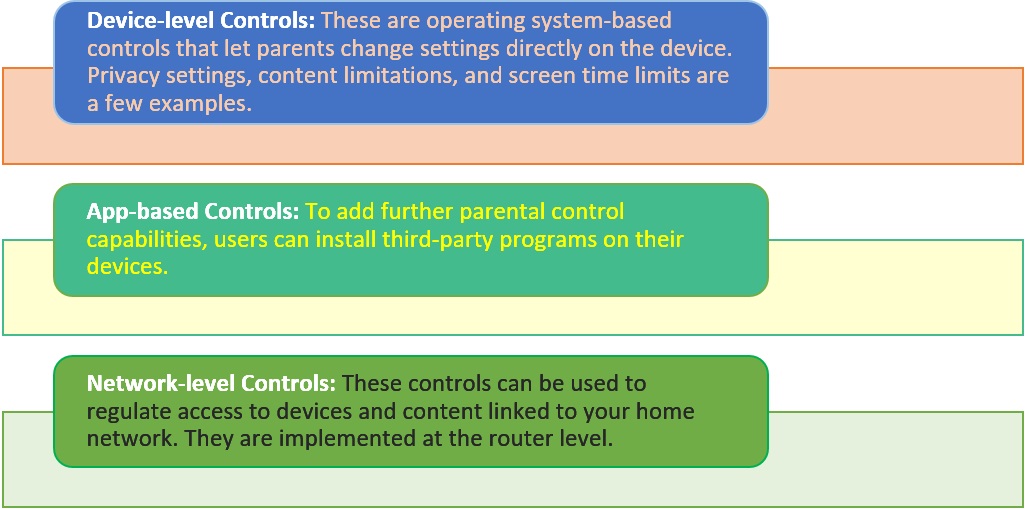
Available parental Control Software & installation
Norton Family: Norton Family allows adults to monitor child activity via web or mobile apps, offering features like screen-time limiting, geo-fencing, and content-blocking.
Qustodio: Qustodio offers a range of features for anxious parents, including robust content-blocking options and detailed activity logs, with configuration and monitoring handled via its online dashboard or mobile apps.
Bark: Bark’s AI-powered app scans children’s emails, social media profiles, texts, and camera roll for harmful content, allowing parents to set up customized content monitoring.
Boomerang: Boomerang offers geo-fences, YouTube app activity monitoring, call logs, text logs, and emergency actions, but most features are available only for Android, including app approvals, blocking, and YouTube history and search monitoring.
Protegent Complete Security: It comes with cutting-edge Parental Control Software that protects your child from unwanted content with features such as blacklisting, whitelisting, and restricted access. You can monitor your child’s internet activities. It ranks among the most trusted and loved parental control programs by parents. This software assists parents in monitoring their children’s computer usage, including visited websites, emails sent and received, chat conversations, files, and online activities providing Total Security to the children. It helps parents to block and limit their children’s exposure to internet sexually explicit content, and sites that can harm their mental state.
Key Features
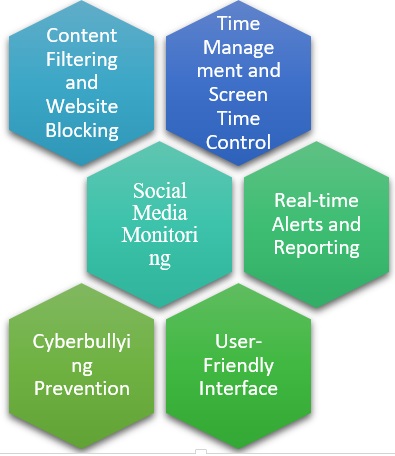
Parents often worry about their child’s digital freedom, and security, which may hinder their learning capacity and expose them to cyber-attacks. With Protegent Complete Security – Parental Control is a must-have for parents to ensure their kids’ digital safety. As a parent, take charge in your hands when today everything is getting automated. Make your kids aware of every possible danger that can harm them or their mental peace. Also, guide them to use security systems, close doors while being alone, and avoid taking or taking eatables from strangers. As a parent, you are the best teacher who can ensure their digital security and well-being.
Take a step forward and ensure your child’s well-being with Parental Control.


